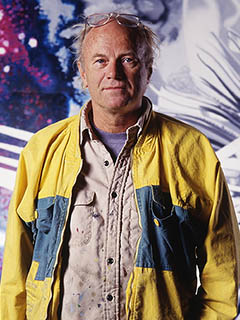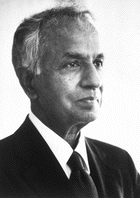A Quote by Robert Nozick
Evolutionary cosmology formulates theories in which a universe is capable of giving rise to and generating future universes out of itself, within black holes or whatever.
Related Quotes
Some physicists solve that problem of the necessity of finely tuned physical constants ... by invoking the anthropic principle, saying, well, here we are, we exist, we have to be in the kind of universe capable of giving rise to us. That in itself is, I think, unsatisfying, and as John Lennox rightly says, some physicists solve that by the multiverse idea-the idea that our universe is just one of many universes.
In an evolutionary context, the goal of the spiritual life is not peace; it's perpetual development. Evolutionary enlightenment is about the ecstasy that compels us to create the future. And it's not a future that's going to unfold by itself while we go back to sleep. It's a future that we forge the hard way through direct, conscious, intentional engagement with the life-process itself.
There is nothing as dreamy and poetic, nothing as radical, subversive, and psychedelic, as mathematics. It is every bit as mind blowing as cosmology or physics (mathematicians conceived of black holes long before astronomers actually found any), and allows more freedom of expression than poetry, art, or music (which depends heavily on properties of the physical universe). Mathematics is the purest of the arts, as well as the most misunderstood.
But if you think about a practical implication of enriching your life and giving you a sense of being part of a larger cosmos and possibly being able to use this [gravitational waves] as a tool in the future maybe to listen not just to black holes colliding, but maybe listen to the big bang itself, those kind of applications may happen in the not too distant future.
Black holes provide theoreticians with an important theoretical laboratory to test ideas. Conditions within a black hole are so extreme, that by analyzing aspects of black holes we see space and time in an exotic environment, one that has shed important, and sometimes perplexing, new light on their fundamental nature.
Scientists say, 'There is no such thing as time; gravity is a dust from another universe, and outside our own universe are many, many universes in all directions.' They speculate that attached to these universes are probably 6,000 planets identical to Earth. So are there things living out there? Animals, people, anything?
Macroscopic objects, as we see them all around us, are governed by a variety of forces, derived from a variety of approximations to a variety of physical theories. In contrast, the only elements in the construction of black holes are our basic concepts of space and time. They are, thus, almost by definition, the most perfect macroscopic objects there are in the universe.







































